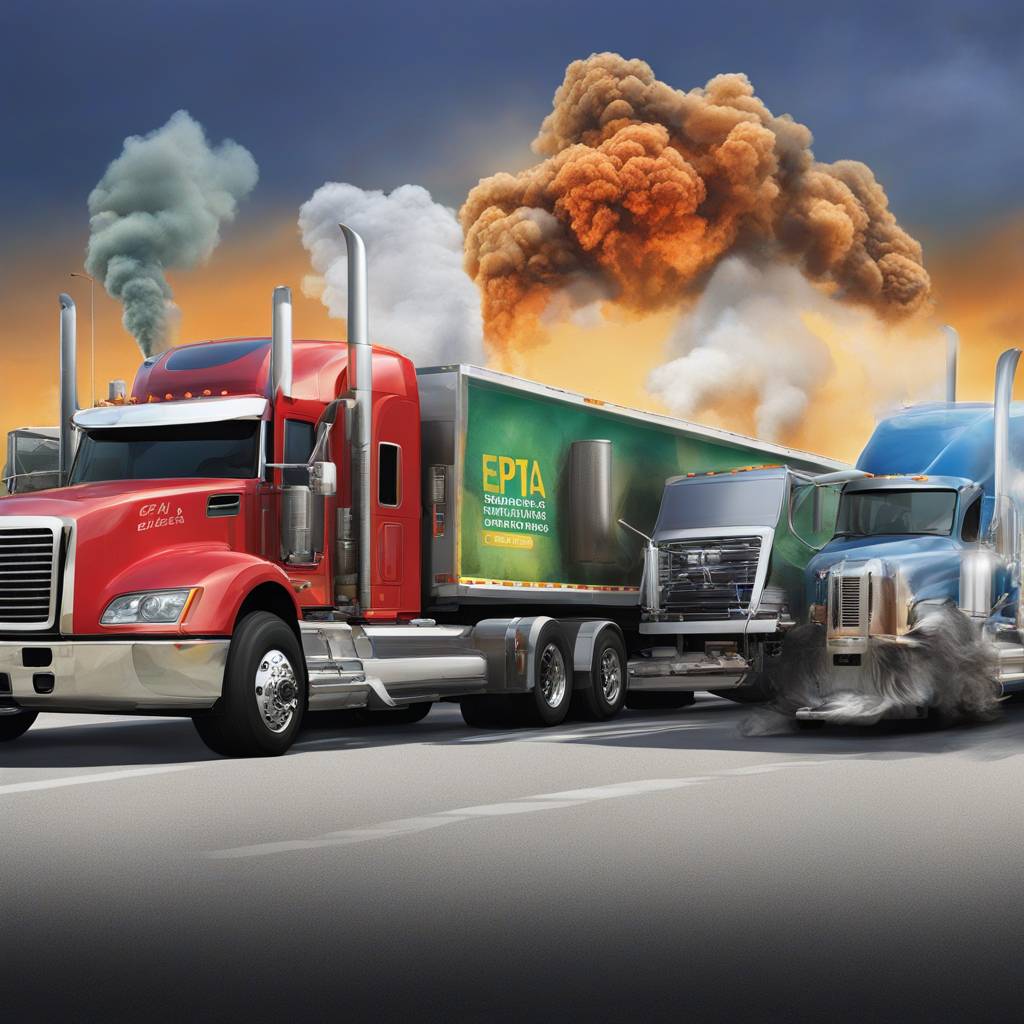The journey to clean up diesel emissions began 24 years ago with regulations to reduce sulfur content in diesel fuel, leading to cleaner engines and fewer toxic emissions. The impact of these regulations was significant in reducing pollution and preventing premature deaths, especially among children and adults with respiratory illnesses. However, vehicles running on petroleum will always emit toxic pollution into the air, with medium and heavy diesel trucks being major contributors to greenhouse gas emissions and harmful pollutants like nitrogen oxide and fine particulates.
Last Friday, the EPA finalized the strongest-ever greenhouse gas standards for new medium and heavy-duty trucks for model years 2027-2032. These standards will reduce greenhouse gas emissions by up to 60% in 2032, preventing carbon pollution and smog pollution. The standards are performance-based and technology-neutral, allowing manufacturers to meet targets through a mix of technologies such as electric powertrain, hydrogen, fuel cells, and improved diesel engines. The total social benefits, including health benefits and cost savings, are estimated at $300 billion by 2055.
The efforts to cut commercial truck emissions have strong industry support, with companies like Ford, Daimler, and Navistar investing heavily in zero-emission vehicles. Nearly 13,000 electric medium and heavy-duty trucks are on the road today, with projections of substantial growth in the electric truck market. The heavy investment in electric vehicle innovation has significantly reduced the price of electric trucks, making them a cost-effective and environmentally friendly alternative to diesel trucks.
The EPA’s final rule offers certainty to the marketplace, allowing companies to set long-term goals and strategies for development and investment in the EV truck sector. By setting a strong national standard, the EPA is aligning with the Biden administration’s efforts to reduce transportation emissions and meet climate commitments. These standards will deliver cleaner air, protect people and the planet, and make the country healthier and stronger in the long run.
Cleaning up emissions from heavy-duty trucks offers immediate and long-term benefits, aligning with the broader effort to combat climate change. The standards, along with the recently announced clean car program, will ensure a livable planet for future generations and help Americans breathe easier. The commitment to cleaner air and healthier communities honors the voices of advocacy, like that of Ms. Damitz, who spoke out about her son’s asthma nearly twenty-five years ago. This ongoing effort is essential for a sustainable and healthier future for all.













